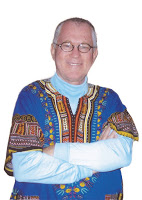
Four people from Kenya are among the representatives participating at the Synod of Bishops that is currently underway at the Vatican. The focus of the top-level meeting in the Catholic Church this time is the young people, their faith and vocation.
Synods in the Catholic Church are periodic assemblies of bishops together with other experts that offer a set of proposals to the Pope on a designated theme. Ordinary synods take place once in three years. The synod that began on 3rd October will end on 28th, following which the Pope is expected to issue a policy document that is technically referred to as an “Apostolic Exhortation”. This time the policy document will focus on youth between the ages of 18 and 29.
Of the roughly 350 participants at the present synod, 267 are voting members, of whom 247 are Bishops, and others are heads of religious orders within the church. The membership at synod also consists of auditors or non-voting members that include 34 young people. The youngest member of the synod is the 21-year-old Joseph Cao Huu Minh Tri from Vietnam.
There are two bishops from Kenya among the voting members: Cardinal John Njue, the Archbishop of Nairobi, and Archbishop Anthony Muheria of Nyeri. Notable among the participants is Sister Lucy Muthoni Nderi. Originally from Embu, Lucy belongs to the religious order of the Salesian Sisters. She presently is studying for her doctorate degree in Educational Psychology in Rome. Professor Kevin De Souza, also from Kenya, is part of the Special Secretariat.
The synod takes place in a spirit of listening to the voices from all over the world. To show the universality of the Catholic Church the “Prayers of the Faithful” at the opening mass on Wednesday were read in Chinese, Arabic, Spanish, Portuguese and Swahili (read by Sister Lucy Muthoni Nderi).
Young people around the world themselves are asking for a more credible church and concrete steps to remove clericalism from the Catholic Church; they want to end the over-domination of clergy. The participants at the synod are trying to truly listen to the experience of young people from around the world and to move to practical, pastoral intervention at the grassroots.
During the first week there are four-minute “Interventions” from the participants. Following every intervention, the bishops are given three minutes to silently reflect. The bishops from Eastern Africa had prepared themselves with their interventions even before their travel to Rome. The themes that are being covered by these bishops will include: youth ministry in schools and universities; civil, social and political engagement; the digital world and its impact on young people; dignity of women; and formation for active citizenry in politics.
Other themes covered by the Bishops from Eastern Africa are: integral and holistic formation in Catholic schools and universities; training of spiritual directors; unemployment; violence and young migrants; and young people as protagonists. Cardinal John Njue will present an intervention on how good faith-education can counter the impact of religious fundamentalism among Catholic young people in Africa.
The Small Discussion Groups by language during the second week will use a reflection method based on three steps: Recognizing, Interpreting, and Choosing. That is, (a) seeing what is happening in the world of the young people today; (b) judging it in the light of Christian scriptures and traditions; (c) choosing action plans that will respond adequately to the situation of the youth.
The current synod is taking place against the backdrop of the guilt and shame suffered by the Church, on account of the heinous acts of sexual abuse of young people and children by some of the clergy. A few bishops are being accused of hiding these crimes or not dealing with them in time. Not surprisingly, some activists and journalists have questioned the relevance of the current synod. The church, however, desires to be proactive in its care for children and young people, without condoning the criminal acts.
Pope Francis, the selfie-pope, desires that the Catholic Church be a community that reaches out to young people, particularly those at the margins. This means sometimes thinking outside the box.
A well-known international journalist has said that one of the main challenges for the bishops at the synod is that young people must be welcomed and empowered to create their own Small Christian Communities, besides their participation in their parish communities. Today, some of these will undoubtedly be virtual communities.
The church in Africa is young. Over 75% of the church members in Eastern Africa are below the age of 30. And the outcome of the synod is likely to have an impact on them, even up to their adult life. It is hoped that young people in Africa will take ownership of the synod, that is, be active protagonists by joining the synod online through the social media.
The authors lecture at Tangaza University College. Father Healey is a consultant at the synod for the bishops from Eastern Africa (AMECEA).
By:
Sahaya G. Selvam
With Fr Joe Healey in Rome
